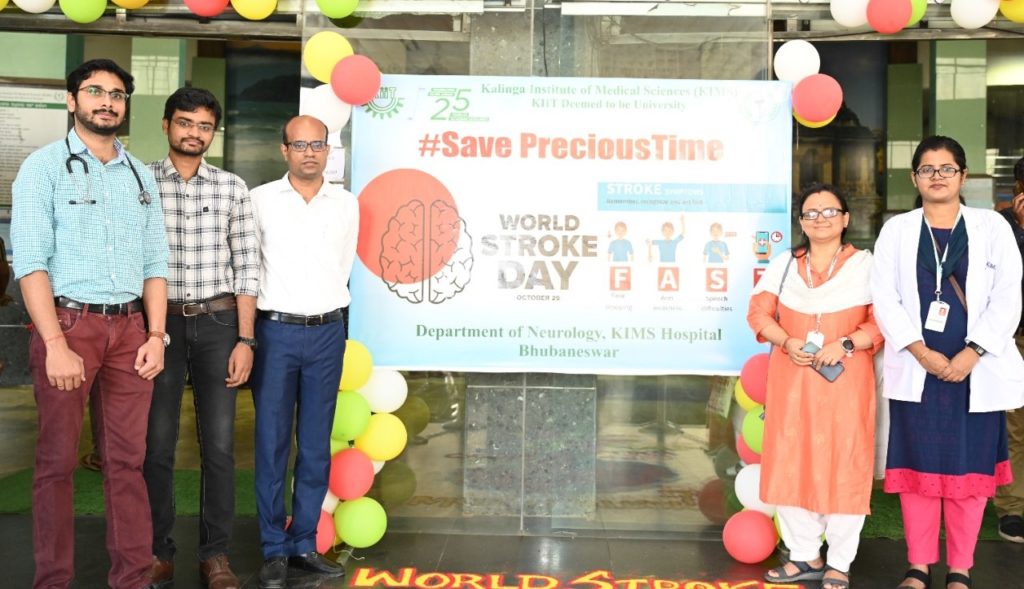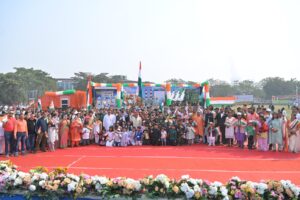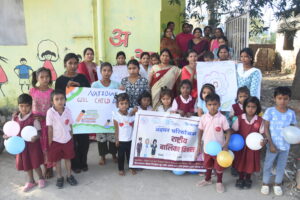Brain stroke patient must reach the hospital within three hours, says KIMS neurologist

Bhubaneswar, October 29: A stroke or brain attack is one of the commonest neurological illnesses happening due to sudden loss of blood flow to the brain. The burden of stroke is increasing in India and it is the fourth leading cause of death and a common cause of disability.
Medical data suggests that in India, the incidence of stroke is 100-150/one lakh persons per year. The commonest symptoms by which anyone can easily identify stroke are FAST: F – Face drop, A-Arm weakness, S –Speech difficulty, T–Time. If any person develops these symptoms within minutes, then he or she may have suffered a stroke.
Associate Professor and HoD Neurology, Kalinga Institute of Medical Sciences, Bhubaneswar Dr Santosh Dash says “human brain suffers irreversible damage if there is a loss of blood flow due to blockage of the blood vessels. In acute stroke, time is crucial, because early treatment saves valuable brain tissue from permanent damage. In acute stroke, early arrival to the hospital, preferably within three hours is vital in stroke treatment. If the patient arrives early, the chance of complete recovery is good in acute stroke, or there may be a permanent disability.’’
So, on the occasion of World Stroke Day, everyone should be aware of stroke and the acute symptoms of a stroke. “Remember, early arrival to the hospital emergency is the key factor in stroke treatment. Each second counts. We have to save precious time and saving life should be our ultimate goal,’’ adds Dr Dash.
The World Stroke Organization, headquartered in Geneva, Switzerland, has suggested the theme of raising awareness of the signs of stroke and the need for timely hospital access to quality stroke treatment.
World Stroke Day on October 29th is observed each year to create public awareness so that more and more people can come to know about it and also realize the importance of early medical consultation if anyone encounters a person with FAST symptoms.
“We all should come forward to help any stroke victim so that anyone suffering from it could be benefitted,’’ suggests the leading neurologist from KIMS.





